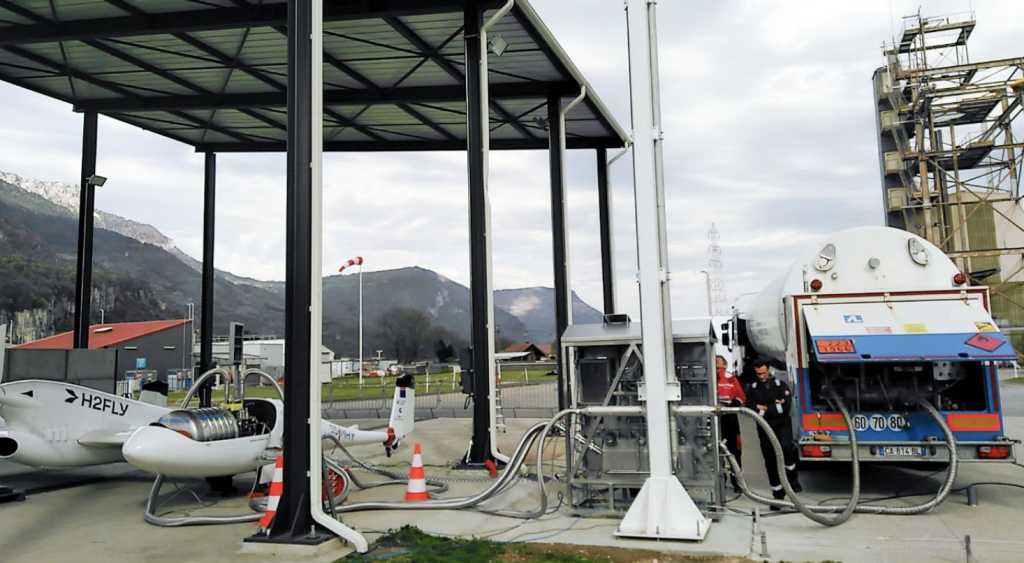The efforts are part of the European project Heaven, a consortium of five partners to demonstrate the feasibility of using liquid, cryogenic hydrogen-powered fuel cell powertrain in aircraft, led by H2FLY, a company that makes hydrogen-powered planes.
1. Liquid hydrogen
H2FLY, the Stuttgart-based developer of hydrogen fuel cell systems for aircraft announced on April 5 that it has successfully passed liquid hydrogen (LH2) on-ground filling tests. The milestone happened with the newly developed liquid hydrogen tank which is integrated into H2FLY’s HY4 aircraft — a four-seat aircraft with hydrogen-electric propulsion, that first took flight in 2016.
“The successful on-ground filling tests mark the next milestone in our pursuit to doubling the range of our HY4 aircraft. It is a critical step for our upcoming flight test campaign this summer, which will demonstrate the feasibility of liquid hydrogen as a fuel for medium and long-haul flight,” said Prof. Dr. Josef Kallo, co-founder and CEO of H2FLY.
If the HY4 launches as scheduled this summer, it will be the first human-crewed flight of a passenger airplane powered by liquid hydrogen in history.
In November 2022, H2FLY announced that it had started the mechanical integration of Air Liquide’s liquid hydrogen tank into H2FLY’s fuel cell powered aircraft HY4 after the tank passed the vibration and LH2 leakage tests in September 2022.
2. Filling procedure
H2FLY has successfully passed the filling tests of the new liquid hydrogen storage system which is designed and supplied by its project partner Air Liquide, based on H2FLY’s requirements.
The filling procedure took place in preparation for the upcoming coupling tests in which the liquid hydrogen storage system will be coupled with the fuel cell system to form a complete hydrogen-electric powertrain. H2FLY led the test campaign on Air Liquide’s Campus Technologies Grenoble, in Sassenage, France together with Air Liquide.
3. Key milestones
H2FLY has pledged to unlock the era of emission-free, sustainable air travel by bringing hydrogen fuel cell technology to the next level. For more than 10 years, H2FLY has been researching, testing, and refining, resulting in the development of the HY4.
In 2020, the company was granted a permit to fly the HY4 aircraft, which featured a fully redundant powertrain architecture. The company managed to achieve more than 100 successful take-offs which have demonstrated the applicability of hydrogen-electric propulsion solutions in aviation.

In 2022, HY4 completed a cross-country flight, from Stuttgart, Germany to Friedrichshafen, covering around 124 km thus marking the first-time hydrogen-powered passenger plane has flown between two commercial airports. Also last year, the company set what is believed to be a world altitude record for a hydrogen aircraft, flying at around 2,2 km.













